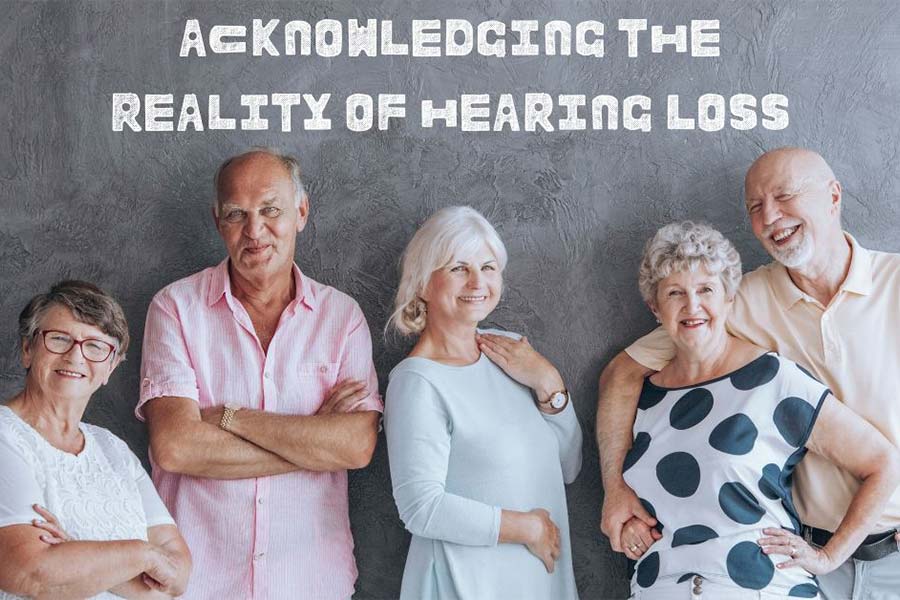It's not easy, but it is important
This article is a guest post by the guys at FitHearing, LLC. Who provide hearing aids across the states with local services. The article outlines a topic that is close to my heart, acknowledging your hearing loss and why it is important. Without further blah, I will hand you over to them.

Approximately 48 million Americans are living with some form of disabling hearing loss, according to the Hearing Loss Association of America. Additionally, of the more than 28 million Americans age 20-69 who could benefit from wearing hearing aids, fewer than 16 per cent have ever used them.
Acknowledging that you may have a hearing loss is not easy. There is social stigma surrounding hearing loss, vanity associated with hearing aids and devices, and ageism to contend with from others and oneself. The only path to better hearing health, however, is by attending to your hearing loss straight away.
Social Advantages
Of the many benefits that improved hearing offers, whether it is with hearing aids, cochlear implants, or other devices, the social benefits can be the most rewarding. Reconnecting with friends, relatives, and co-workers through conversation can feel like a delightful pastime, instead of a chore because of misheard words or phrases that can lead to misunderstanding.
Outings with loved ones can also provide a level of exercise that you would otherwise miss out on by staying home in isolation. Being active and communicating regularly exercises your brain and prevents the risk of depression and cognitive decline.
Health Benefits
As mentioned above, there are also mental health benefits to maintaining healthy hearing. Since the brain plays a large role in the hearing process, it is important not to let hearing loss go untreated. When hearing loss goes untreated, the brain has to work harder. When noise collected in the ear canal is turned into electrical signals that are then carried along the auditory nerve, the brain translates that information into recognizable sound.
When hearing loss is present and untreated, the brain has to work harder to fill in the missing gaps of information. This can lead to low energy, mental fatigue, and migraines. If you have ever been more tired than usual after a busy day, either socially or at work, it could be mental fatigue. Perhaps your brain is working harder to compensate for a hearing loss, however slight, and it may be a good idea to get your hearing checked.
Resources
There are many resources available to find a hearing healthcare professional and schedule a hearing exam. You can even find hearing tests online that you can take before getting a thorough exam and diagnosis from an audiologist or hearing specialist.
An audiologist, a healthcare professional who diagnoses and treats hearing-related disorders, or a board-certified hearing instrument specialist (BC-HIS) can administer the exam and go over the results with you before making recommendations. They can be found online or you can get a referral from your doctor.
Hearing Aids
One of the solutions your hearing healthcare professional might suggest is hearing aids. Hearing aids can help in a variety of ways, especially because there are different models that perform distinct functions thanks to advancements in technology over the years.
In order for your doctor to properly fit you for a hearing aid, they will need information about your lifestyle and hearing needs. You will have to inform them about your career, social habits, hobbies, et cetera. Do you live alone, in assisted living, with a large family? One type of hearing aid would likely not be fitted for all three of these environments. Do you have trouble hearing high pitches in voices or music? All of this information is important to ensure that you get the correct device and that it will support you and your specific needs.
Treating Hearing Loss
Acknowledgement can lead to action! Therein lies the empowerment of coming to terms with untreated hearing loss. Taking proactive steps to take care of your hearing health can lead to better overall health, too. Your mental and social well-being will improve exponentially as you counteract the effects of disabling hearing loss with attention and care.
You can also reach out to your support systems when you have questions or are feeling isolated. Hearing loss affects over 48 million Americans and 466 million people worldwide, making it one of the most common medical conditions affecting a given population. There is a wealth of information available from your hearing healthcare professional and online, including resources to find doctors and testing facilities.
Like us on Facebook by clicking the button below to keep up with our latest burblings, you know you want to!










